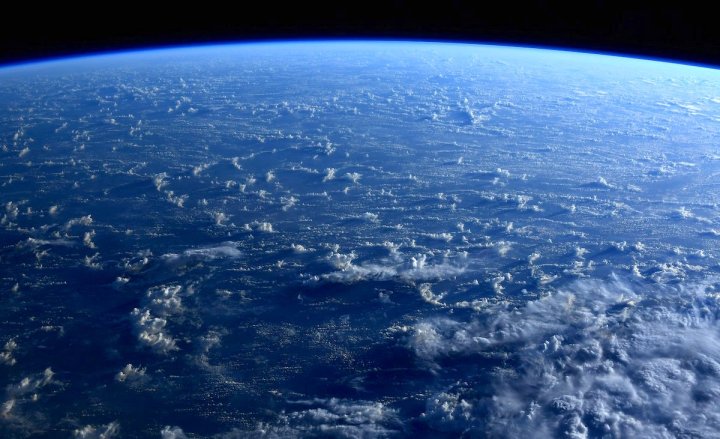
A space station astronaut has captured a striking photo of Earth showing only water.
Posting the image on Twitter, European Space Agency astronaut Thomas Pesquet described the scene as “our blue marble,” a nod to the famous image of Earth taken by the Apollo 17 crew in 1972.
Pesquet added: “Sometimes, there’s just no land in sight, even from our 400-km [250-mile] crow’s nest. I think of all the sailors and explorers who traveled the world on solitary expeditions.”
🌎 Our blue marble. Sometimes, there's just no land in sight, even from our 400 km crow's nest. I think of all the sailors and explorers who traveled the world on solitary expeditions ⛵️ #MissionAlpha pic.twitter.com/sQ0F33DEZm
— Thomas Pesquet (@Thom_astro) May 26, 2021
As the French astronaut suggests, most images shot from the International Space Station Earth usually contain at least a little bit of land. But Pesquet’s impressive picture is a reminder that our planet actually comprises mostly ocean, with water covering about 70% of its surface.
ISS photography
The ISS crew is constantly changing, with most missions lasting about six months. Among each new crew, a keen photographer often emerges, with Pesquet clearly possessing an eye for an amazing shot.
We recently showcased some of his best Earth pictures snapped in the weeks since his arrival on the space station in April 2021, his second visit to date. Among the last ISS crew, Japanese astronaut Soichi Noguchi revealed himself as a keen Earth observer, regularly sharing his own amazing pictures of our planet.
For the best views, space station astronauts usually head to the Cupola, a seven-window module that was attached to the ISS in 2010, 10 years after the station went into operation.
Pesquet and other crew members have a wide range of advanced cameras and lenses to choose from, including top models made by the likes of Nikon and Sony.
To find out more about life on the space station, take a look at these videos recorded by astronauts who’ve visited the orbiting outpost over the years.


